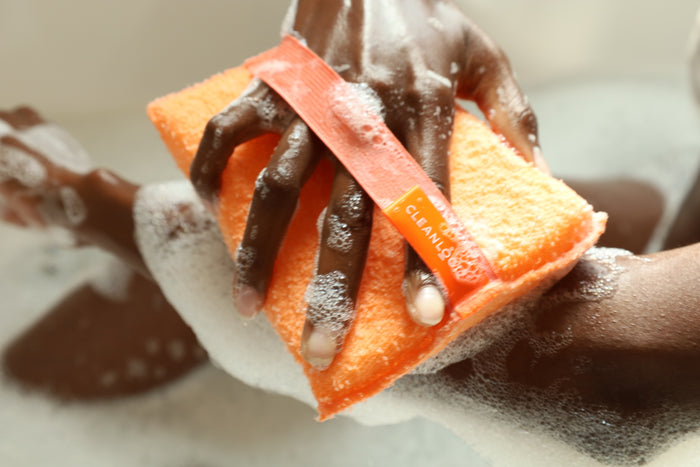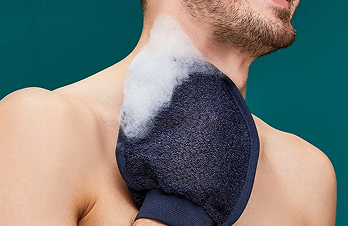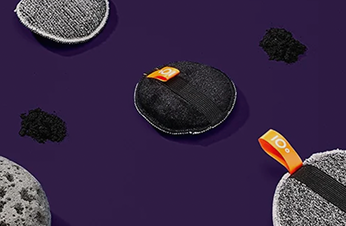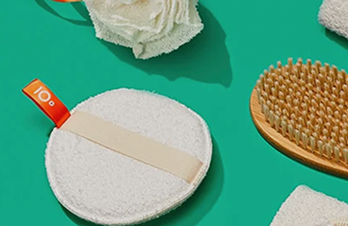It's important to care for your skin, and it's surprising that many people don't know this. Statistics reveal that sixty percent of individuals neglect taking care of their skin unless it's giving them a problem. It's worth noting that skincare makes you look more beautiful and even slightly younger than your age.
Dermatologists have referred to exfoliation as the primary and most important way to do away with dead skin cells, which brings out the smooth glowing skin lying under the surface.
Unfortunately, many beauty amateurs or cosmetologists exfoliate excessively, which is harmful; this is one big mistake that individuals make as over-exfoliating can lead to irritation, redness of the skin, inflamed skin, e.t.c. In this article, we'll be discussing exfoliating, types of exfoliators, how often you should exfoliate, and many more.
Types of Exfoliants
Talking about Exfoliants, we must first discuss the different types of exfoliation. In this section, we'll be explaining the three different types of exfoliation, after which we'll discuss the types of exfoliants.
Physical Exfoliation:
Physical exfoliators are traditional, meaning they've been in existence for a long time. This type of exfoliation is when bristles or granules are used to scrub and remove dead skin cells gently. Unfortunately, many individuals find this method irritating, especially for those who possess delicate skin types. Also, individuals that are prone to acne would find this method unusable.
Chemical Exfoliation:
There are many types of chemical exfoliators, but the most common chemical exfoliators include:
- Alpha-hydroxy acids (AHAs)
- Beta-Hydroxy Acids (BHAs)
- Poly-Hydroxy acids (PHAs).
What these chemical exfoliators do is break apart the bond that holds the dead skin cells in place, making them easier to eliminate.
Enzymatic Exfoliation (Sensitive Skin):
This type of exfoliation is best for reactive and sensitive skin types. The term “enzymes” is found in natural resources. Fruits are one of the natural resources that enzymes are found in; this enzyme works similar to chemical exfoliation as they tend to break up "keratin" located in the skin. However, the enzymes are slower than chemical exfoliators; due to the slow reaction, the turnover process is safe.
Now that we know the three types of exfoliation, we can now discuss some types of exfoliants available.
Here are some types of exfoliants below:
- We've mentioned the types of chemical exfoliants above; they include the Alpha hydroxy acids (AHAs), beta-Hydroxy acids (BHAs), and Poly-Hydroxy acids (PHAs). However, the most common ones are the AHAs and BHAs.
- Physical exfoliants include bristles, body scrubs; however, the most common physical exfoliant is the giant granular scrub. The giant granular scrub contains some ingredients such as oatmeal, nutshells, beans, sugar, fruit pits, and sometimes baking soda. The grains help to scrub the skin removing the dead skin cell; larger or smaller grains depend on how harsh the granular scrub will be on your skin.
Average Shelf Life of Exfoliants
Generally, skin care products should last approximately three years without being opened; although this depends on the products, different products tend to last longer. However, once a skincare product is opened, it is exposed to bacteria, and individuals are prompted to use their skincare products within one year after opening. Nevertheless, this also depends on the type of product you've purchased.
The same thing goes for exfoliants, and individuals are advised to use their exfoliants after opening for a minimum of 1 year. So actually, exfoliants won't take that much time before it gets finished. If, however, you mistakenly open exfoliant skincare, you should be using it within a year to avoid side effects and reactions.
How Often Should You Exfoliate?
This depends on the type of skin type you possess. Exfoliation helps remove dead skin cells, giving you bright and radiant skin to bring out your fascinating beauty. However, you shouldn't do exfoliating every time; this is why we've written this section in this article to help you determine how often you should exfoliate, based on your skin type.
For Dry/Sensitive Skin:
Individuals with dry and sensitive skin types should be cautious in choosing a method of exfoliation because some products may lead to excessive skin dryness. According to research, we discovered that you should exfoliate dry skin types with good products once or twice every week.
For Oily or Acne-Prone Skin:
Individuals with oily or acne-prone skins are advised to go for products that possess salicylic acid. In other words, individuals who possess oily skin should use the chemical exfoliation method for best results and exfoliate their skin two to three times every week.
For Combination Skin:
Individuals with combination skin are the luckiest set of people as they can use any method of exfoliation without worry. They can always switch between scrubs, enzymes, and chemicals. They are required to exfoliate two to three times a week also.
For Mature Skin:
Exfoliation for mature skin should be twice a week, and chemical exfoliation is best for individuals with these skin types.
When to Change your Exfoliators
Exfoliators are changed when you can no longer use them or if they're expired. All exfoliants have a prescribed expiry date. Also, you should change your exfoliators if you discover it is reacting wrongly on your skin. This is why it is better to know which exfoliant matches your skin.
Conclusion
With uttermost brevity, this article has explained everything you need to know about exfoliation and how to use, to bring out your sparkling and radiant skin.
Cleanlogic Bath and Body Exfoliating Body Gloves – Cleanlogic Body Care












0 comments